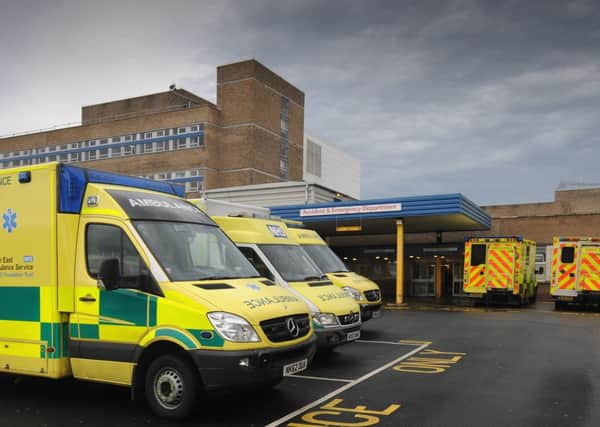Warning over superbug as cash cuts hit hospitals


Eight out of ten medics from Yorkshire questioned in a nationwide poll said cost-cutting in the health service increased the risk of hospital-acquired infections.
According to the survey carried out for a new report into the infection Clostridium difficile (C diff), half of clinicians thought financial penalties against hospitals for missing targets to cut cases could lead to failures to report the true number.
Advertisement
Hide AdAdvertisement
Hide AdMulti-million pound fines can be levied against bodies not hitting targets, with Leeds Teaching Hospitals NHS Trust facing penalties of £3.5m over its failures on this – and waiting times.
Professor Mark Wilcox, professor of medical microbiology at Leeds Teaching Hospitals and the University of Leeds, who co-wrote the report, said: “Complacency and financial constraints are threats to the improvements that have been made in C.diff control.
“People are having to make cutbacks in all sorts of places, though it’s not as simple as not cleaning, that’s a possibility.”
Prof Wilcox said he was “not convinced” financial penalties were the best approach, as cases had already fallen substantially.
“I think the targets are muddying the waters,” he said.
Advertisement
Hide AdAdvertisement
Hide Ad“What would make more sense is to have a different way of performance managing or incentivising, rather than this fear of large fines which may lead to unintended consequences.”
The Think C-differently report found that though cases had been reduced, they were still at “unacceptable levels”.
In England, incidences fell by 19 per cent in the past year and Leeds hospitals recorded a 72 per cent drop over the past five years.
However a poll of 100 clinicians found 80 per cent from Yorkshire, and 72 per cent across the country, believed cuts to the NHS increased the risk of hospital-acquired infections.
Advertisement
Hide AdAdvertisement
Hide AdHealth Minister Dr Dan Poulter said it was “unacceptable” for cases not to be reported.
“If hospitals are not reporting, action can be taken and the Care Quality Commission can be informed,” he added.
“The recent successes in reducing infections are testament to the hard work of NHS staff. But we are clear that is the responsibility of everyone in the NHS to be transparent and to work to further reduce the incidence of C difficile. We will not tolerate cases where poor care is covered up.”